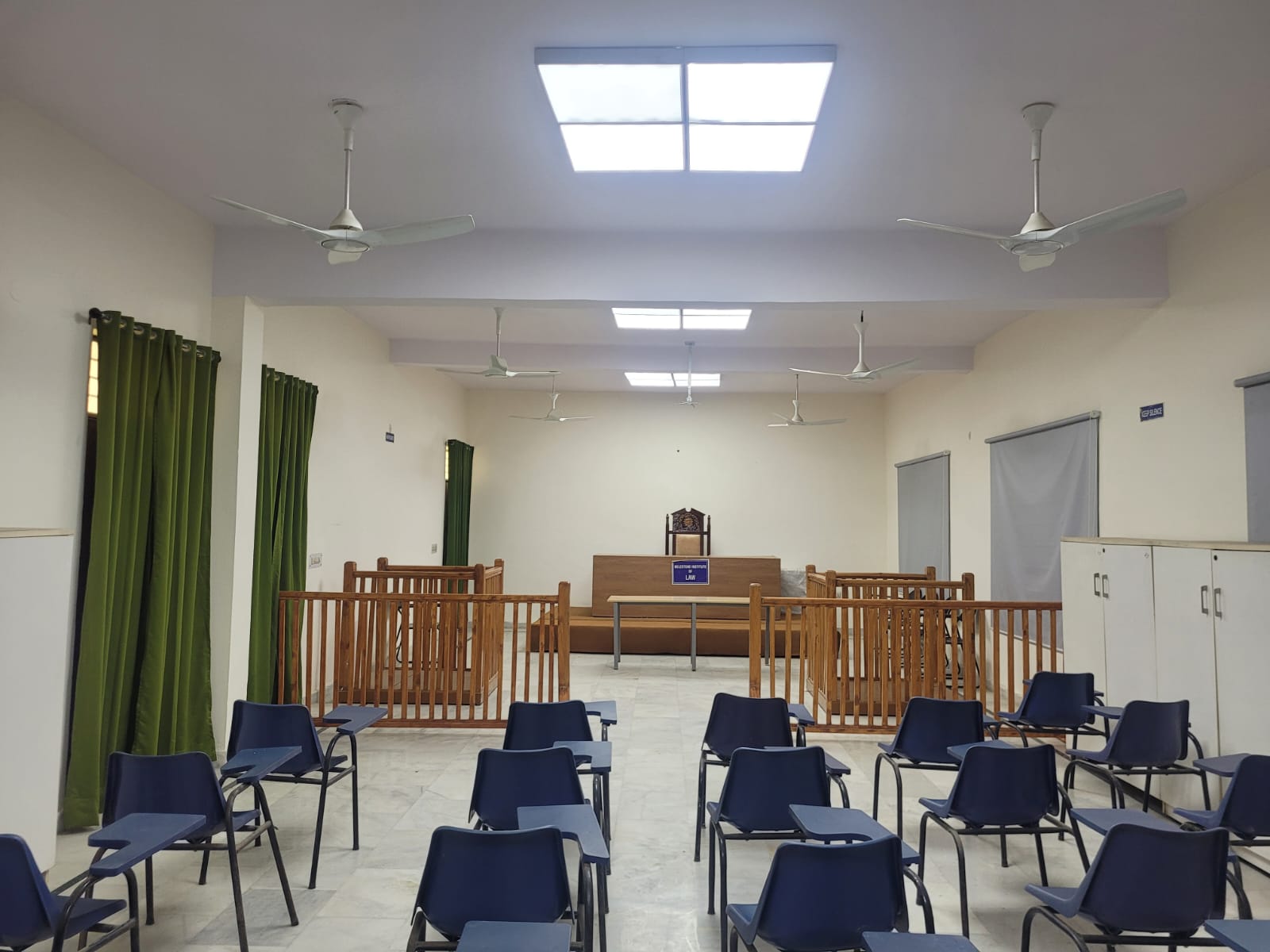The Moot Court at our law college is a vital part of the academic experience, designed to give students a realistic and practical understanding of courtroom procedures and legal advocacy. It serves as a simulated court environment where law students engage in mock trials, draft legal documents, and present oral arguments, replicating the experience of real-life litigation.
Equipped with a professional courtroom setting—including judges' bench, witness stand, and seating for advocates and audience—the Moot Court provides students with a platform to apply their theoretical knowledge to practical scenarios. It helps them develop key legal skills such as legal research, drafting, argumentation, and public speaking.
Activities organized by the Moot Court Committee include:

Through these activities, students gain exposure to various branches of law such as constitutional law, criminal law, civil procedure, and international law. Participation in moot court activities also instills confidence, enhances analytical thinking, and prepares students for real court proceedings and future legal practice.
The Moot Court is more than just a learning space—it is a gateway for aspiring legal professionals to transition from classroom learning to courtroom competence.
© 2024 Milestone Institute Of Law, All Rights Reserved.
Designed By AWS